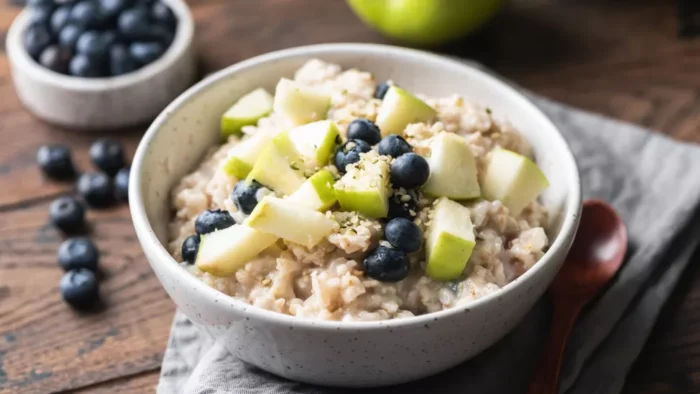As we grow older, our bodies naturally start to break down. This process can lead to a host of medical issues, but it can also have an impact on our mental health. One of the most important things you can do to maintain your mental health is to eat a balanced diet. In this article, we will explore these questions and more. By the end, you’ll have a better understanding of how nutrition and mental health are connected and what you can do to improve both.
Table of Contents
Nutrition is a Major Contributor to Our Mental Health
When our diets are balanced and provide the right nutrients, it can help us maintain a healthy mind and body. Eating disorders, for example, often result from a poor diet or an unbalanced one. Poor nutrition can also lead to anxiety and stress, which can have negative impacts on our mental health.
A good diet contains plenty of fruits and vegetables, whole grains, and lean protein sources. These foods provide essential vitamins, minerals, and antioxidants that can support mental health. Foods that are high in sugar or processed ingredients are not as helpful when it comes to maintaining a healthy mind and body. Too much sugar can lead to obesity and other health problems, while too many processed foods contain additives that can be harmful to our bodies.
By eating a balanced diet full of nutritious foods, you can help keep your mind healthy and strong! legacynutrition.org can provide you more information about the importance of good nutrition for mental health.
How Food Affects Our Mental Health?

There is a clear connection between nutrition and our mental health. Eating a well-rounded and nutritious diet can help to improve moods and cognitive function, reduce stress levels, and support overall wellbeing. While there are many factors that influence our mental health, including genetics, environment, and lifestyle choices, eating a healthy diet is an important part of maintaining good mental health.
Food also contains loads of energy which can affect our mood indirectly by boosting serotonin production. Serotonin is a neurotransmitter responsible for regulating mood and sleep patterns. Foods that are high in tryptophan (a trace nutrient found in some protein sources) like poultry, fish, eggs whites, yogurt, legumes including beans and lentils have been shown to boost serotonin levels. Additionally consuming foods containing B vitamins (especially B12) can help to improve mood because they support the body’s production of serotonin.
The Best Food for Our Mental Health

One reason why a poor diet can lead to mental health issues is because it can negatively impact the way the brain functions. Poor nutrition can lead to low levels of important vitamins and minerals, which in turn can damage nerve cells, leading to increased anxiety and stress. And chronic stress can have negative effects on mood, memory, focus and cognition.
There are plenty of good foods that can support our mental health. Here are five of the best:

- Fruits and vegetables: Sources of vitamin C, folate, potassium and other antioxidants, fruits and vegetables are essential for a healthy mind and body. They contain anti-inflammatory compounds that may help reduce anxiety symptoms. In addition to their nutritional value, many fruits and vegetables are also delicious – making them an easy way to add more veggies into your diet without feeling deprived or uncomfortable.
- Lean protein: Protein is key for supporting cognitive function, mood stability and overall well-being. It’s also important for building muscle – something that’s particularly beneficial for people with anxiety disorders who may struggle to maintain weight or gain muscle mass due to their condition. Opt for animal proteins over plant-based ones when possible – they tend to be higher in quality and provide more nutrients than alternative sources.
- Healthy fats: Good fats are essential for brain health and promote mood stability. Omega-3 fatty acids are particularly important, as they play a role in cognitive function, mood regulation and synaptic plasticity. Some good sources of omega-3s include salmon, tuna, nuts and seeds.
- Fiber: One of the best things you can do for your mental health is to eat plenty of fiber-rich foods. Fiber is a type of carbohydrate that helps to keep us feeling full and satisfied longer, which can help reduce cravings and contribute to overall weight loss. In addition to helping with weight management, fiber also supports regularity – something that can be challenging for people with anxiety disorders who often experience difficulty sticking to a schedule.
- Water: It’s no secret that staying hydrated is essential for overall well-being. Not only does water help to flush out toxins from our bodies, but it also helps to maintain normal blood pressure and fluid levels – all of which are critical for healthy brain function. And since anxiety can lead to dehydration, making sure you’re drinking enough water every day is one way to support your mental health.
How to Improve Our Mental Health Through Proper Nutrition?

One way to improve your mental health through proper nutrition is to eat more plants. Plant-based proteins are high in fiber and Omega-3 fatty acids. Additionally, plant-based foods are low in saturated fat and cholesterol, which can help reduce the risk of heart disease.
To maximize the benefits of a plant-based diet, make sure to include plenty of fruits and vegetables in your meals. Not only will you get loads of vitamins and minerals, but they’ll also provide mood-boosting antioxidants. When selecting fruits and vegetables, try to stick to those that are lower in sugar (such as berries) or sodium (such as leafy greens).
Another way is to exercise regularly. Exercise has been shown to be beneficial for overall mental well-being by helping increase feelings of happiness and satisfaction with life, reducing anxiety, reducing stress levels, improving sleep quality and promoting positive moods. When doing cardiovascular workouts that focus on increasing the intensity gradually over a longer period of time rather than going all out from the get go helps people maintain better mental health throughout their workout program.
In conclusion, proper nutrition plays an important role in improving mental health. Eating plenty of fruits and vegetables, exercising regularly and reducing your intake of sugar and sodium can all help to improve your mood.

Leave a Reply